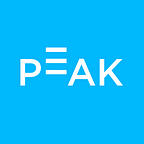Brain Training Is the Name of the Game for Rugby Union’s Northampton Saints
Rugby pros investigating the impact of brain training on physical performance and on recovery from head injuries
The Northampton Saints, the Aviva Premiership’s 2014–2015 league toppers, are used to putting in gruelling hours of physical exercise to be at peak fitness levels when they meet their opponents.
This season, the rugby union team are training their brains as well, part of an 8-month research project with the University of Cambridge and Peak, to understand if the mental workouts can further boost their performance on the field, and ultimately, if the games can help in the assessment and recovery from head injuries.
The notion that training the brain can help improve physical performance is gaining ground in sport psychology and science. Olympic athletes have used visualisation techniques to enhance performance; while British soldiers have used brain training to increase endurance. It’s also been shown that brain training used by Navy Seals in the US military is helping professional athletes stay cool and calm under pressure and to sharpen their focus and spatial awareness.
The Saints, like all elite athletes, need to be able to maintain their focus and keep mentally engaged during the entire 80 minutes of intense match action.
The team will be training their brains with Peak Pro during the 2015/16 season, with performance monitored and analysed at regular intervals, aiming to adapt brain training to each player’s individual needs.
The training follows a summer-long trial where members of the Saints squad underwent regular assessments in different key cognitive areas identified as important in elite sports performance, including memory and focus. The group was divided into two. Half of the group underwent memory training for 30 days using the Peak Advanced Training Memory game. Upon completion, the entire group was assessed again. The trial convinced the club that a longer project could eventually help with on field performance and in their assessment and management of head injuries, enabling them to be much more thorough and directed in improving player welfare.
Saints physio Lee Daggett, who is leading the study at Franklin’s Gardens, said the brain training, “…will give us the wherewithal not just to measure our players’ cognitive abilities, but also to assess the impact of brain training in improving their performance levels and recovery from the head injuries which can sometimes occur in a contact sport.”
